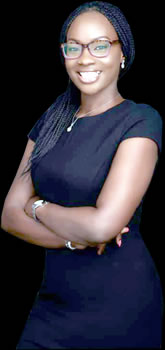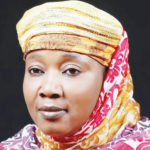
At what point did you become a teacher after being trained as medical doctor?
I attended Queens College, Yaba, and the University of Lagos (UNILAG). I graduated and went on to do my master’s in Public Health. People would always ask me ‘where did education come in?’ I think I have always been a teacher even from my early years. I remember that I would be the one to gather children in my area and teach them though I was a child myself. Most people in the university remember me as the person who did tutorials for them. So, I have always been a teacher. I think for me, education is really my core calling. I always say that God prepared me with medicine; there is a certain level of discipline, resilience that you get when you go through medical school. However, I have a post graduate certificate in Educational Leadership. I am also a Montessori certified teacher from the North American Montessori school in Canada. I have gone for trainings home and abroad. The latest one was the one I did at Harvard in May this year: Organisational Leadership.
ALSO READ: Ekiti 2018: Fayose causes stir, confronts security chiefs at CSO event
Do you miss medicine?
I am a public health specialist and the truth is that when you are a doctor, you are always a doctor. Everyone remembers you as a doctor, my father still calls me a doctor, my aunt, my cousins and relatives. Nobody makes you to forget that you are a doctor so, I still practice and because I work with children, I am almost functioning as a pediatrician as well. You know they come in with stomach ache, a scraped knee, a headache and all. Medicine is something that never leaves you. I am just not practicing it clinically and fully. I won’t say I miss it because I am occupied with all the things I am doing in the educational sector and that brings me a lot of fulfillment and joy.
When did you start the Kid’s Court School and what were the challenges you faced?
Starting the kid’s court school in 2009 was in retrospect, interesting, though it was not interesting then. Before then, I didn’t have anything to do with education, I had not taught anywhere. I had only been exposed to a good school in Lekki called Discovery House and I really loved the Montessori way of teaching. I felt like it was something I could do and started because of that. Interestingly, in the early years, it wasn’t really challenging. I mean I was young and had the I can do all things spirit. I was young and excited about it because people used to call it a London school because of the Montessori material and it was sort of new in Surulere so people gravitated towards it. At the end of the first year, we had about fifty something children, we were about twenty-two when we started. So, there was really no problem at the start up level. I think the challenges started with growing. We had more students, more teachers and more customers with varying needs of customers. So I think the major issues were issues of growth and managing people which was what led me to the leadership school. Managing people was really tasking for me in those early years. I had people that were older than me, I was twenty-seven and I had a fifty-four-year-old working with me, so it was really challenging. Customers will always want what they want, if you’ve open your doors to customers you should be able to meet their needs. At a point we had space issues too, we were too many, there were more children than we had space for. Of course we had financial issues too but I think the issue for me has always been people.
What do you like most about teaching?
I think what I like most about teaching is the fact that you are given the privilege to watch children grow. Children that come to you at eighteen months, you watch them through the stages of life until they get to ten or eleven and you are a constant figure in their life. So, their life story cannot be written without naming you as part of that, it is a privilege to be able to mould these children, to be a role model, to facilitate learning. If you have twenty children in your classroom as a class teacher and you can make these children as great as you want them to be. As a school owner, you know that about three hundred children destinies are tied to yours, so you dare not mess up. For me, that is the joy, beyond that, there is this team of teachers, staff that your destinies are sort of intertwined. It is as though you are part of life itself, like a plant growing, you are part of the growth itself. For me that is the joy of education.
You also have a foundation, what is it about?
In medicine you are trained to be disciplined and to pay attention to details. You can’t go in front of a patient without
You are a teacher, a school owner, a wife and a mother, how do you juggle that together:
First of all, its grace. When you walk according to purpose, God makes things very easy for you. I also have a very good support system, my husband is fantastic. He wants me to do as much as my head can think to do and he supports me. There is no lacuna in my house; there is no reason to say I am not available. I have a very wonderful family, my parents, my sister especially; she has been wonderful as well. I also have a very wonderful team, The Kid’s Court teachers and staff have a sense of ownership, when I am not around you can’t know am not around. There is a deep sense of ownership and you can never know I am not around. I also have a group of friends that I can bounce ideas off with.
What would you say have been the most defining moment of your career?
That’s a deep question. There are a lot of defining moments. When we started, the secondary school was defining because we went from a place where we knew to a place where we did not know so there was a need to raise the bar. It, was a little challenging, we went from Montessori to the British curriculum, and it took a lot from us. When I had my masters too, it took me in the direction of leadership and made me realise that was what was missing, that you are intelligent, you are astute but the people aspect that was my weakness. I found that I had to lead my people if I needed to have a school. A very recent one too when I went for the women in leadership conference in Harvard, I found out that there is a lot to be done in education. That I can go into educational policy, mainstream advocacy for education. Those for me are the most defining moments in my career.
Finally, what is your advice for young girls out there?
Young girls are distracted, I want to look a certain way, I want to belong to this clique, it is a destiny thief. What young girls should focus on instead is to be exceptional, focus on being great at whatever it is they want to be. You can decide you want to be a tailor or a singer, but how do you use your youth to be exceptional? I am thirty-five; I started Kid’s Court when I was twenty-seven. I think because of the family I grew up in, it is non-negotiable that you must use your youth to pursue excellence, everything else will be added unto it. Just like the bible says ‘seek the kingdom of God and its righteousness and every other thing shall be added to you’ We must tell our youths, the women, the girls that the time they have now is to pursue excellence. Now people call me to come and speak, they want to hear what I want to say. Did I have issues while growing up? Of course, peer pressure. If I could go back and delete that part of my life, I will. If I am going to give an advice, it is going to be seek excellence, be disciplined.
What advice do you have for parents who are too busy for their children, who don’t know their children’s potentials
I tell people that when God gives you a child, the most important thing in your life needs to be that child. Yes, it is not easy because we are living in the twenty-first century and need to make money especially since school fees is not a walk in the park. Parents however need to find a way to balance it. If you go to work all day, weekends should not be a time to go for Owambes. Spend quality time with your children. What we see now is that people are not balancing it; they spend their week at work and weekend all and about. We need to know that once these children go beyond where your voice can be heard or it makes sense to them, then they have left you. That is why you see parents of teenagers now find it difficult to talk to them. It is almost too late; you must take time out to bond with your children. Parents are now trying to outsource parenting to schools, to nannies, to drivers. Your child is your child and your child can never be another person’s child.





